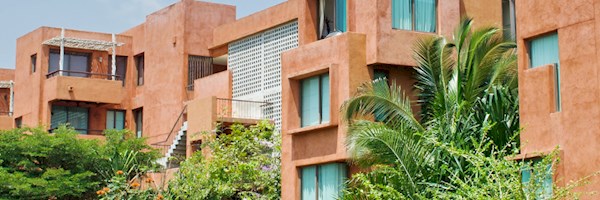Although sectional title living may not be for everyone, living within such a community does have a number of benefits. Firstly, the costs of cluster living are usually lower than those associated with freehold ownership. Amenities such as swimming pools, clubhouses and security issues are generally looked after by a body corporate and although a levy will have to be paid, this often works out cheaper when costs are shared. Security is undoubtedly another reason why South Africans favour the sectional title model. While living in close proximity to one’s neighbour may not guarantee safety, it tends to make people feel more secure knowing that help is at hand. Proper security can be expensive and although many sectional title owners enjoy the benefit of electric fences and other security features, this could prove far more costly if they were living in a freehold home and were forced shoulder these costs alone.
It is factors such as these, as well as the fact that buyers are able to invest in properties which are smaller than traditional freehold homes that is boosting sales in the sectional title segment of the market.
A recent report by John Loos, FNB's Household and Property Sector Strategist, says that the sectional title market has been outperforming the full title sector since early 2014.
Demand drives prices and it's interesting to note that the strongest year-on-year house price inflation was found in one bedroom sectional title units, which rose to the tune of 11.4 percent. Price inflation on properties with two bedrooms on the other hand was 7.9 percent. He noted that the relative weak spot in the sectional title segment appears to be three bedroom units, which only rose by five percent.
On the other hand, Loos says there has been a slowing in price growth in the freehold market. Smaller homes - those featuring two bedrooms and fewer - recorded a 7.2 percent year-on-year price inflation and the average price of property in this segment is R577 522. Larger properties, that is those with three, or four and more bedrooms, are currently the weaker part of the full title market showing price inflation of 4.5 percent and 4.9 percent respectively.
Loos also notes that there are three factors which may have favoured sectional title. "Firstly, from 2009 until 2014 we had a steady rise in first-time buying levels expressed as a percentage of total home buying, peaking at 28% in the 2nd quarter of last year. We suspect that these financially “limited” buyers are a key source of demand for smaller sectional title units."
He adds that there has been an increase, albeit small, in the buy-to-let segment of the market and sectional title units may well have attracted more buyers than the freehold sector.
"Thirdly, we believe that it may be very much about affordability, not only of home values, but also home running costs. Perceptions that crime may again be getting worse despite official crime stats suggesting the contrary could also be fuelling greater demand for “secure” cluster living. This is often sectional title and lowers the average cost of somewhat expensive security measures and communal amenities," he says.
